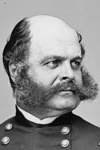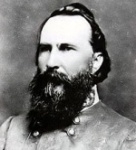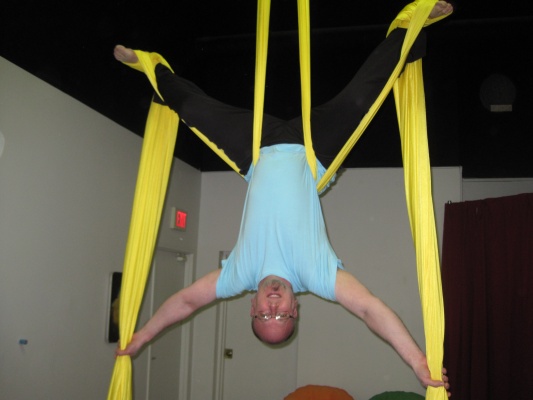I’m on the road in beautiful Bellingham, Washington, with very little opportunity to blog. Otherwise, I’d have chimed in a few times in the ongoing discussion of the “Who Owes Whom” post that immediately precedes this one. As it is, I’ll save all my comments till I return next week.
Monthly Archive for May, 2011
Under the headline “Ultimatum Holding Up Trade Deals”, the New York Times reports that:
The Obama administration said on Monday that it would not seek Congressional approval of free trade agreements with Colombia, Panama and South Korea until Republicans agree to expand assistance for American workers who might lose jobs as a result.
I have said this before and I will say it again: Anybody who loses his job because of a free trade agreement was overpaid to begin with. The $20-an-hour American who loses his job to a $5-an-hour Colombian is an American who has spent the past few years charging his countrymen twenty dollars for something they ought to have been able to buy for five.
So if I were writing this article it would have read something like this:
The Obama administration said on Monday that it would not seek Congressional approval of free trade agreements with Colombia, Panama and South Korea until Republicans agree to extort additional money from American consumer/taxpayers who might stop being overcharged as a result.
I guess that’s why I never got that call from the New York Times.

|

|
The Smithsonian Magazine asks its readers to vote on who had the best Civil War facial hair. Burnside wins, as well he should. But how is Longstreet not even among the candidates?
I haven’t been able to find the exact quote, but unless my memory is playing tricks, Martin Gardner once posed the question “What modern artifact would most astonish Aristotle?”, and concluded that the answer was a Texas Instruments programmable calculator that could be taught to execute simple series of instructions. That was, roughly, 1975.
Here is what my iPhone does: It listens to the radio and tells me the name of the artist, song and album. It scans bar codes and tells me where to get the same item cheaper. It gives me step by step directions to anyplace I want to go. It points me to the nearest public bathroom. It recommends restaurants, based on cuisine, price, and proximity. It plays any music I want it to play, and it recommends new music based on what it’s learned about my preferences. It shows me a photograph of the entire earth and lets me slowly (or quickly) zoom in on my (or your) front porch. It takes pictures. It takes videos. It lets me edit those pictures and videos. It photographs 360 degree panoramas. It plays movies. It plays TV shows. It displays pretty much any book, newspaper or magazine I want to read. It reminds me where I parked my car. It lets me draw rough sketches of diagrams with my fingers and makes them look professional. It allows me to accept credit cards. It takes dictation. It checks the stock market or the weather with the push of a button. It reminds me of my appointments. It lets me browse the Web. It shows me my email. It locates and summons nearby taxicabs. It turns itself into a carpenter’s level. It turns itself into a flashlight. It makes phone calls. It makes video calls. And, oh yes — it has a calculator.
Now who would have been more astonished? Aristotle confronted with Martin Gardner’s calculator, or the Martin Gardner of 1975 confronted with my iPhone? I’m going to say it’s a close call.
Last week, Britain had a referendum to decide whether or not to replace its current “first past the post” electoral system with the alternative vote system (AV). During the campaign, the No to AV campaign claimed that changing to AV could cost £250 million, in part because voting machines would be introduced with it. Yes campaigner and member of parliament, Simon Hughes claimed that this was false and that the No campaigners knew it was. He asked the electoral commission to stop the No campaigners from lying.
Similar appeals are often made by other frustrated political disputants. But the idea that electioneering politicians should be allowed to say, and voters to hear, only what the electoral commission deems to be true and honestly believed is outrageous. It would make election outcomes depend on the judgement, not of the voters, but of the electoral commissioners.
The proposal is also unnecessary. As anyone who has argued with blowhards will know, there is an easy way of showing that someone does not really believe what he says. Challenge him to a wager. Demand that he put his money where his mouth is.
If the No campaigners really believe that changing to AV would cost £250 million, they will be willing to bet on it. By offering the wager, and having it declined, Mr Hughes would expose their insincerity. Equally, Mr Hughes’ failure to suggest the wager may tell us something about his own alleged certainty on the matter.
Politicians should generally be obliged to bet on the outcomes their various claims. This would discourage their lying which, incredible as it may sound, is even more widespread than people working with the standard definition of lying realise.
First time doing this move; that’s my daughter’s voice in the background telling me everything I’m doing wrong. Next time will be smoother:
And a bonus picture:

 Through the 1970s — which is to say, yesterday — Dan Quillen barraged the field of algebraic topology with a stream of new techniques and concepts that not only invigorated the field, but ramped up its power to solve problems in geometry, arithmetic and other mathematical areas where you might have thought topology had no business sticking its nose.
Through the 1970s — which is to say, yesterday — Dan Quillen barraged the field of algebraic topology with a stream of new techniques and concepts that not only invigorated the field, but ramped up its power to solve problems in geometry, arithmetic and other mathematical areas where you might have thought topology had no business sticking its nose.
The greatest of these great accomplishments was Quillen’s development of higher algebraic K-theory, a long-sought holy grail for mathematicians. Pre-Quillen, one had a sense that there ought to be a subject called higher K-theory, and a general sense of what it should look like, and reasons to hope that K-theory, if only we could figure out what it was, would be the great unifying theme behind much of mathematics, and a tool for translating insights in one field into useful techniques in another. Many had tried and failed to lay the foundations of the subject. Then Quillen, in one 63 page paper, not only laid the foundations but brought the subject to a state of maturity that, in the words of Hyman Bass, one normally expects from the efforts of several mathematicians over several years:
The paper…is essentially without mathematical precursors. Reading it for the first time is like landing on a new and friendly mathematical planet. One meets there not only new theorems and new methods, but new mathematical creatures and a complete paradigm of gestures for dealing with them.
Much of my mathematical youth was spent exploring that planet. I met Quillen only once, and very briefly, but great mathematicians, like great poets, reveal so much of themselves in their work that one comes to feel a certain intimacy just by studying them. In that sense, Quillen was my close companion many a year.
Dan Quillen died this week at the age of 70, after a five year battle with Alzheimer’s. Scouring the web for obituaries and other recent mentions, I found very little besides a brief article from a Gainesville newspaper about an Alzheimer’s patient named Daniel Gray Quillen who had gone briefly missing in June, 2010. Followup stories identify the missing man as “a senior citizen with Alzheimer’s”.
“A senior citizen”?!?!?! Part of me wants to scream: “Dammit, this is no generic senior citizen! This is Daniel Fucking Quillen, Fields Medalist, Cole Prize Winner, architect of higher K-theory, conqueror of the Serre conjecture, and one of the intellectual giants of the 20th century!”
Arguably none of that has any place in a short note about a man gone briefly missing, so my gripe is not with the Gainesville Sun. My gripe is with the Universe. If I were running the Universe, there’d be some level of accomplishment that confers immunity from death, deterioration and obscurity. I’m not sure exactly where I’d set that bar, but I’m sure Dan Quillen would have cleared it.
 The problem with locavores — the breed of environmentalists who tout locally grown food, partly to minimize energy costs — is that they’re insensitive to the quality of the environment. A New York locavore spurns California tomatoes because of the energy spent trucking them across the country. But to focus on a small number of factors, like energy consumption, is to ignore a vast number of others: Do California tomatos, grown in locations where there might have been vineyards, displace California grapes? Do New York tomatos, grown in greenhouses where there might have been housing developments, lengthen morning commutes? What other useful services might California or New York workers provide if they weren’t growing tomatos? What are the alternative uses in each location for fertilizers, or farming equipment, or the resources that go into producing fertilizers and farming equipment?
The problem with locavores — the breed of environmentalists who tout locally grown food, partly to minimize energy costs — is that they’re insensitive to the quality of the environment. A New York locavore spurns California tomatoes because of the energy spent trucking them across the country. But to focus on a small number of factors, like energy consumption, is to ignore a vast number of others: Do California tomatos, grown in locations where there might have been vineyards, displace California grapes? Do New York tomatos, grown in greenhouses where there might have been housing developments, lengthen morning commutes? What other useful services might California or New York workers provide if they weren’t growing tomatos? What are the alternative uses in each location for fertilizers, or farming equipment, or the resources that go into producing fertilizers and farming equipment?
Last August, Steven Budiansky, the self-described “Liberal Curmudgeon”, wrote a New York Times piece that I criticized on this blog for, essentially, making 1% of the right point and ignoring the other 99%. Now, having reread Budiansky, I think I was unfair to him. He had this right all the way through.

